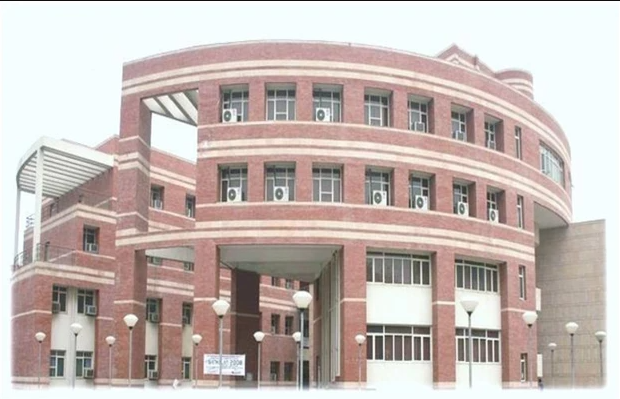85.5% voter turnout in DU Teachers’ Association polls

85.5% voter turnout in DU Teachers’ Association polls
In the recent Delhi University Teachers’ Association (DUTA) elections, a remarkable voter turnout was witnessed, with an impressive 85.5 percent of the eligible 9,500 voters exercising their franchise. These elections featured two prominent contenders, namely the National Democratic Teachers Front (NDTF), which has affiliations with the Rashtriya Swayamsevak Sangh (RSS), and the Democratic United Teachers’ Alliance (D.U.T.A.).
Notably, for these elections, an alliance known as the ‘Democratic United Teachers’ Alliance’ was formed, bringing together nine teachers’ organizations with differing ideologies. This alliance was created with the goal of uniting and representing a broader spectrum of teachers within the university.
Among the member organizations of this alliance are the Democratic Teachers’ Front (DTF), the Academic for Action and Development Delhi Teachers’ Association (AADTA) backed by the Aam Aadmi Party (AAP), the Indian National Teachers Congress (INTEC), the Delhi Teachers Initiative (DTI), the Samajwadi Shikshak Manch (SSM), the Common Teachers’ Front (CTF), the Independent Teachers’ Front for Social Justice (ITF-SJ), and the ‘Voice of DU Ad hocs’.
The formation of this alliance reflects a collaborative effort among various teacher groups with diverse perspectives, working together to collectively participate in the democratic process and shape the direction of the Delhi University Teachers’ Association. The substantial voter turnout underscores the significant interest and engagement of the university’s teaching community in these elections, highlighting their importance in the academic landscape.
The recent DUTA elections held in 2023 marked a significant contest between the NDTF and D.U.T.A., with historical context adding to the stakes. In the previous elections held in 2021, the NDTF emerged victorious. However, prior to that, the Democratic Teachers’ Front (DTF) had secured victory in the polls five times consecutively.
The polling for these elections took place from 10 am to 5 pm, allowing eligible voters to cast their ballots. Out of the total of 9,500 eligible voters, a substantial 8,187 exercised their right to vote in the elections.
The NDTF presented AK Bhagi as their candidate, who had previously won the position of president in the teachers’ body elections. On the other side, the D.U.T.A. fielded Aditya Narayan Mishra as their joint candidate, setting the stage for a closely contested election. These elections are crucial in determining the leadership and direction of the Delhi University Teachers’ Association, and they hold significance in shaping the academic landscape of the university.
Aditya Narayan Mishra, who previously served as the president of the Delhi University Teacher’s Association (DUTA) for three terms, emphasized that the alliance they have formed represents a robust and influential force dedicated to protecting the rights of teachers within the university.
He raised concerns about the financial situation of Delhi University (DU), suggesting that the university has taken a significant loan, amounting to several crores of rupees. Mishra voiced apprehension that this financial burden could directly impact students and their educational experience.
Mishra underscored that the primary goal of the alliance, comprised of nine teachers’ groups, is to come together and work collectively to secure the future of the institution. This alliance appears to be driven by a shared commitment to safeguarding the interests and well-being of both teachers and students within the university, particularly in the face of financial challenges and other issues that may affect the institution’s stability and future direction.
Aditya Narayan Mishra shared his concerns about the financial situation at Delhi University (DU), revealing that the institution has accumulated a significant loan of Rs 1,100 crore. He emphasized that this financial burden could potentially have a direct and unprecedented impact on the students at the university. He also noted that it is remarkable and unusual in the history of DU to witness nine teacher organizations uniting with a shared objective of securing the institution’s future.
V S Negi, the general secretary of the National Democratic Teachers Front (NDTF), expressed a different perspective. He mentioned that teachers are backing AK Bhagi for the elections, suggesting that the alliance formed by various teachers’ associations with differing ideologies is spreading negativity. Negi also highlighted a specific issue concerning recently appointed teachers, particularly ad hoc teachers, and stated their intention to advocate for the recognition of their ad hoc experience as part of their services.
Amidst the election discussions, DU professor Rahul Kumar drew attention to the challenges faced by DU teachers, including delayed promotions and salary issues. These concerns and differing viewpoints illustrate the complex landscape of issues and priorities within the university’s teaching community.
Teachers at Delhi University (DU) have raised a series of pressing concerns that reflect the challenges faced within the institution. Among these issues, delayed promotions and salary increments stand out as a consequence of government funding issues. This has not only affected the career progression of teachers but has also caused financial distress.
Moreover, the allegation that teachers are not receiving their pensions adds to the worries of retired faculty members who rely on these funds. Another teacher, Ruby Mishra, a chemistry professor at Deshbandu College, pointed out that a freeze on new appointments has left many teachers, who have dedicated years of service, in uncertain positions. Financial constraints in colleges have further exacerbated the situation, making it difficult to meet payroll obligations.
Additionally, a professor from Motilal Nehru College emphasized that the roles and responsibilities of teachers are under threat, citing the lack of autonomy in course structures and syllabi. He raised concerns about the absence of regulations and security for faculty members, particularly in terms of displacement within the university. Job security and permanent positions are emphasized, especially for guest teachers, who have dedicated significant time to the university. In summary, these faculty members are advocating for better job security and improved working conditions, particularly given their long-term commitment to the university.




